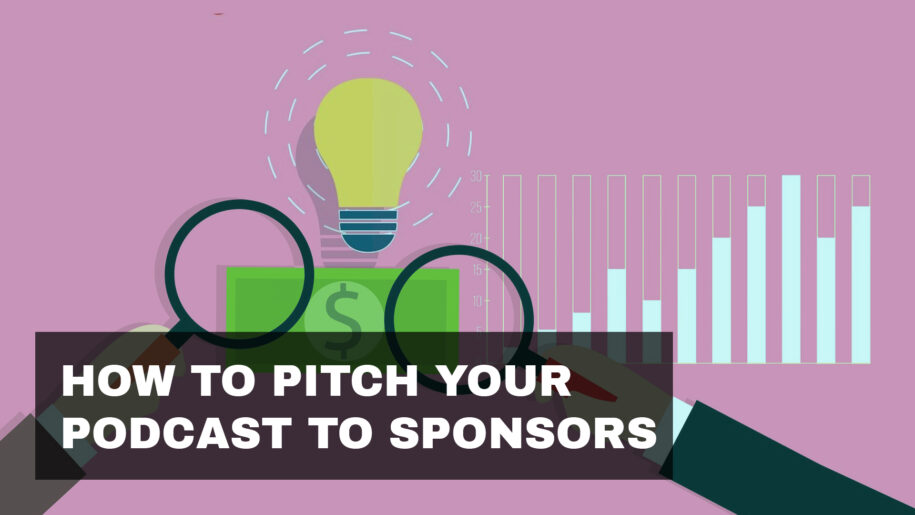Securing sponsorships can significantly boost your podcast’s revenue and allow you to invest more in production quality and marketing efforts. However, pitching your podcast to potential sponsors requires a strategic approach. In this blog post, we’ll guide you through the steps to create a compelling pitch and successfully attract sponsors for your podcast.
Why Sponsorships Matter
Sponsorships provide financial support and credibility to your podcast. They can also help you reach new audiences through cross-promotion. Understanding how to effectively pitch your podcast to sponsors is essential for long-term growth and sustainability.
Steps to Pitch Your Podcast to Sponsors
1. Understand Your Audience
- What It Is: Gather detailed information about your listeners, including demographics, interests, and behaviors.
- Why It Matters: Sponsors want to know who they’re reaching through your podcast. A clear understanding of your audience helps you tailor your pitch to align with their target market.
- Tips: Use analytics tools provided by your podcast hosting platform to gather listener data.
2. Build a Media Kit
- What It Is: A media kit is a document that provides potential sponsors with key information about your podcast.
- Why It Matters: A well-designed media kit makes your podcast look professional and provides all the necessary information in one place.
- Contents:
- Podcast overview: Brief description of your show and its unique selling points.
- Audience demographics: Data about your listeners.
- Download statistics: Average downloads per episode and total downloads.
- Social media presence: Followers and engagement metrics.
- Testimonials: Quotes from listeners or past sponsors.
- Sponsorship options: Different packages and pricing.
3. Identify Potential Sponsors
- What It Is: Research companies and brands that align with your podcast’s content and audience.
- Why It Matters: Targeting the right sponsors increases the chances of a successful pitch and long-term partnerships.
- Tips: Look for companies already sponsoring similar podcasts or those whose products or services match your audience’s interests.
4. Craft a Personalized Pitch
- What It Is: A tailored proposal to each potential sponsor explaining why they should sponsor your podcast.
- Why It Matters: Personalized pitches show that you’ve done your homework and understand the sponsor’s needs.
- Components:
- Introduction: Briefly introduce yourself and your podcast.
- Audience match: Explain how your audience aligns with the sponsor’s target market.
- Sponsorship benefits: Highlight the advantages of sponsoring your podcast (e.g., brand exposure, audience engagement).
- Sponsorship options: Outline the available packages and what the sponsor will receive.
- Call to action: Encourage the sponsor to take the next step, whether it’s scheduling a meeting or requesting more information.
5. Highlight Your Unique Value Proposition
- What It Is: Emphasize what sets your podcast apart from others.
- Why It Matters: Sponsors need to see why investing in your podcast is worthwhile.
- Tips: Focus on your podcast’s niche, engaged audience, and any unique formats or segments that add value.
6. Provide Proof of Success
- What It Is: Showcase past achievements and positive outcomes from previous sponsorships.
- Why It Matters: Demonstrating success builds credibility and trust with potential sponsors.
- Examples: Case studies, testimonials, and examples of successful sponsorship campaigns.
7. Follow Up Professionally
- What It Is: Send a follow-up email or call after your initial pitch.
- Why It Matters: Following up shows persistence and professionalism, keeping your pitch top of mind.
- Tips: Wait a week or two before following up, and be polite and concise in your communication.
Real-Life Examples and Lessons
To illustrate the effectiveness of these steps, let’s look at some real-life examples:
- Example 1: A tech podcast successfully secured a sponsorship from a software company by highlighting their highly engaged, tech-savvy audience and providing detailed analytics in their media kit.
- Example 2: A health and wellness podcast landed a sponsorship with a fitness brand by showcasing past successful campaigns and aligning their audience’s interests with the brand’s target market.
Pitching your podcast to sponsors involves understanding your audience, creating a compelling media kit, identifying and targeting the right sponsors, crafting personalized pitches, and following up professionally. By highlighting your unique value and providing proof of success, you can attract sponsors that align with your podcast’s vision and audience.
Start building your media kit and researching potential sponsors today. With a strategic approach and persistence, you can secure valuable sponsorships that support your podcast’s growth and sustainability.


